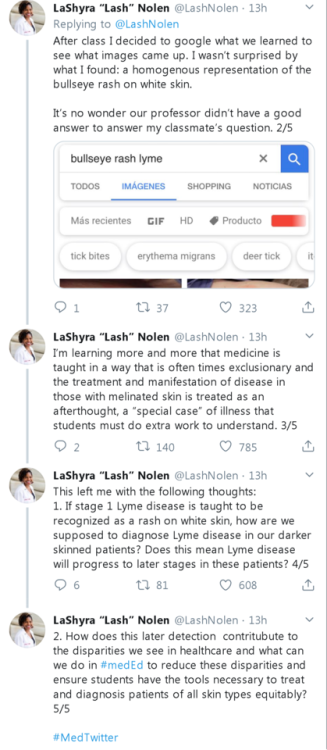wayfaringmd:populationpensive:wahtdahel:Most of the medical research was done on white males and the
wayfaringmd:populationpensive:wahtdahel:Most of the medical research was done on white males and their response to medicine. This is why medical books should only serve as a framework but clinical expertise matters more.And this is why we need more black doctors.There is a great instagram called Brown Skin Matters that has certified photos of different rashes and skin conditions. I find this VERY helpful. I just recently stumbled on it and it’s a nice, quick, resource. My partner and I discussed this yesterday. There is also a Dermatology for Skin of Color textbook by Kelly and Taylor but it unfortunately doesn’t have a ton of pictures. When i used to have access, Visual Dx did make a decent attempt to include examples on darker skin tones, but it’s expensive and my hospital doesn’t pay for access to it anymore. Strongly recommend sending in clinical images to Brown Skin Matters Instagram, Figure 1, and other apps/websites if you have them and have patient permission. We need to build these databases. THIS! Having practiced and studied medicine in Kenya, our references are all euro-centric. I haven’t come across literature and textbooks that adequately encapsulate dermatological conditions & signs in people of color. This makes accurate and timely diagnosis difficult.Of note, dermatology post graduate programs are not even offered here. We have a lot pathology, with a dedicated dermatological ward in the National Referral Hospital but attendings/consultants have trained abroad. I hear South Africa has a decent program though.We can do better, make medicine inclusive for what shockingly should be obvious; all human beings (more specifically blacks and other poc because they’re the only ones excluded) -- source link
Tumblr Blog : wahtdahel.tumblr.com
#blacklivesmatter#medblr#dermatology

